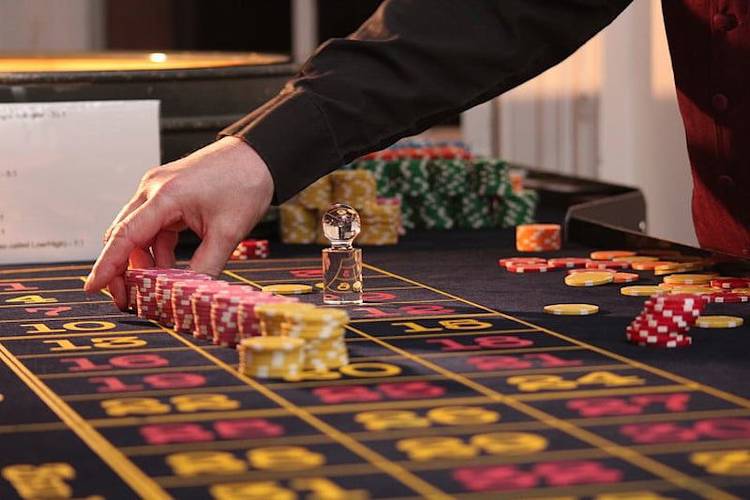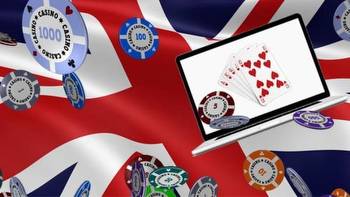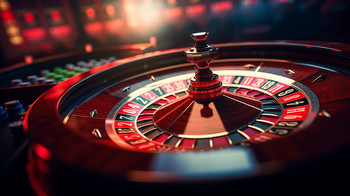Finns among the top 5 most gambling nations

Where does this enthusiasm come from? The answer is not that simple.
There are many reasons why casino games are so popular in Finland. Sure, playing habits and preferences are individual, but you can easily find national commonalities explaining the popularity of gambling. These include geographical, cultural, and social factors.
Geography could be a factor in the popularity of casino games in Finland. The country is located far up in the north, and weather conditions significantly impact people’s opportunities to be outdoors during the long, dark, and cold winter months, or even rainy summer days. Finns tend to spend a lot of time indoors and look for suitable entertainment there. And what could be more attractive indoor entertainment than online games including gambling?
Finland’s remoteness is also one likely reason why a Finns is gambling so much. Life in this remote country has been relatively easy and safe for decades without significant turbulence or big crises. To counterbalance an even and secure life, people tend to look for excitement elsewhere, and gambling is one option.
Social factors can also play a role. This northern nation is renowned for its quietness. You don't waffle around and don't necessarily always yearn for the company of another person. For a Finn, it's enough to have things to focus on. Gambling is a hassle-free way to spend time without the company of others.
These may not be all-encompassing explanations, but they are potential factors in studying the popularity of gambling in Finland over the past several decades.
Gambling has a long tradition in Finland, dating back several centuries. Already the people who were the first to settle in Finland played bets in a rudimentary style or threw stone or bone dice in their huts and later in their smokehouses.
Casino gaming, as it is known today, dates back several decades in Finland. The first land-based casinos in the country were established in the 1990s, and since then, the gambling industry has grown significantly. With the rise of the internet, casinos that work online have also become increasingly popular, offering players the convenience of playing from home – which suits many introvert Finns quite well.
For the first time, you could play casino games in nightclubs about 50 years ago, when casino gaming became popular among Finns. At first, only roulette games were offered in the nicer domes. A little later, blackjack games also entered the picture, and players started to use different strategies in their playing.
Since the early days of Finnish casino gaming, Finland has had a gambling monopoly. This means that the country's monopoly company has collected all the profits from all nightclub casino games. Restaurant owners much approved this system since the casino games brought new customers to the clubs even if the profits ran elsewhere. Casino games also enabled restaurants to have longer opening hours. This time was an actual golden age of roulette and blackjack to many in the entertainment industry.
Traditional casino games had their own glory and nostalgia, but with slot machines, the nature of gaming changed. In the 1960s, the first simple slot machines started to appear in Finnish restaurants. Although the games were very simple, they offered very new and exciting entertainment from the players' point of view.
In the 1990s, slot machines started to appear in bars and pubs. In a way, casino games also partially lost their glory when games were available everywhere and gambling became part of everyday life. Today, there are still more than 30,000 slot machines. Slot machines can be found in almost every store, kiosk, and gas station, making playing very easy, as you can place bets on just a quick shopping trip.
Although the specific games and forms of gambling may have changed over time, the concept of betting and gaming for entertainment and recreation has remained stable in Finnish culture. The most significant difference from the past is that today the vast majority of gaming takes place online.
During this millennium, gambling has heavily moved online. More and more Finnish people prefer to play casino games online rather than in land-based casinos. There are actually many reasons for this, and no single reason alone explains the entire phenomenon.
One of the main reasons why Finns play so much at casinos that work online is the development of technology and high-speed internet connections in Finland. The majority of people have unlimited mobile data, which allows being online everywhere. The games can be started instantly, for example, from the sofa of your own home or on a bus to work, and the player doesn’t have to think about how far they have to walk to enter the casino and whether their hair is in order. Gambling can start with just a few clicks on a computer or mobile.
The Finnish people have many options for casinos that work online. Finns can play at a state-owned domestic casino that works online, but in addition, there are also hundreds of safe and high-quality foreign sites. Foreign sites compete with domestic publicly owned sites by offering multiple payment options, higher bonuses while providing Finnish language games and customer service. Finns are one of the world's most playing nations, and that's why most casinos have targeted their offering to Finnish players.
Foreign casinos also try to attract Finnish players by proving their trustworthiness via acquiring gaming license. The most valuable licenses are from Malta (Malta Gaming Authority) and Estonia (Estonia Tax and Customs Board), but casinos operating with Curacao licenses have also grown in popularity among players.
Casinos that have grown in popularity even more in the last few years are casinos without registration. Almost all casinos without registration are aimed at Finns because the entire registration-free gaming is mainly a feature aimed at Nordic players.
In these casinos, players can create a gaming account in a matter of seconds without the need to provide any personal information, making it easy and straight forward to start playing.
This is achieved through the use of online banking services, such as Trustly, which acts as an intermediary between the player and the casino. Players simply log in to their online banking account, confirm the transaction, and their gaming account is created and funded in real time. This process eliminates the need for lengthy registration forms and verification processes, making it a fast and convenient way to play casino games online.
Withdrawals in casinos without registration work similarly to deposits, using the same online banking service that was used to fund the account. To make a withdrawal, players simply visit the cashier section of the casino, enter the amount they wish to withdraw, and confirm the transaction through their online banking account. Casinos without registration usually process withdrawals in real time through the automatic computer system, meaning the funds are transferred almost immediately after leaving the withdrawal request. Winnings are generally transferred to the bank account in just minutes. Here is one absolute trump card compared to traditional casinos that work online, where you usually have to wait several days for winnings.
Casinos without registration have grown in popularity, especially among Finnish players. Most Finns choose them for speed and security reasons. These sites allow players to engage in online gambling without providing personal information or undergoing verification processes. They can also be more secure, as they use online banking credentials to authenticate transactions and reduce the risk of fraud.
Depending on different perspectives, casinos without registration can be seen as both a threat and an opportunity. On the good side, they allow fast and easy playing without extra verification processes, while on the other hand, it can also be too fast and easy, which makes it easy to surpass the player's own budget. In order to mitigate this problem, those sites which work under the EEA license, and EEA licensors, such as Malta and Estonia, are bound to offer several responsible gaming tools, such as deposit and loss limits, which help players stick within their budget.
In terms of their offer, these casinos offer a variety of games online, including slots, table games, live dealer games, and sports betting options and wide variety of bonuses such as wager-free free spins and non-sticky bonuses, which make it much easier to withdraw winnings.
The main downside of casinos without registration is that there is only one payment option available: online bank transfer. Other methods, such as e-wallets or card payments are not accepted.
According to the Gambling of Finns 2019 population survey, approximately 78 percent of mainland Finland's 15-74-year-old population had played some kind of gambling during the past year. 29 percent of the respondents had played a gambling game once a week or more. The most popular games are lottery games and slot machines.
Gambling online has increased. In 2019, 36 percent of the respondents had played online in the last 12 months. According to research, more than half of Finnish casino players play games on a mobile device.
Men play gambling games more often than women. 75 percent of women and 82 percent of men had played gambling games in the previous year. The most common gambling is in the 25–44 age group.
Gambling among minors has decreased with the raising of Finland’s age limit for gambling, which took place in 2010 and 2011, but the proportion of underage gamblers did not change from 2015 to 2019. While 16 percent of minors had played lottery games in 2015, the corresponding ratio in 2019 was 31 percent. This is primarily explained by playing scratch cards.
Even though many are attracted to gambling for the thrill, social interaction and possible financial gain, gambling can be addictive, and negatively impact a person’s life, leading to financial ruin and relationship problems. While there is a potential for financial gain, there is a higher risk of losing money, which can lead to debt and other financial problems. There are also possible adverse effects on mental health, such as stress, anxiety, and depression, especially if a person experiences losses or becomes addicted.































